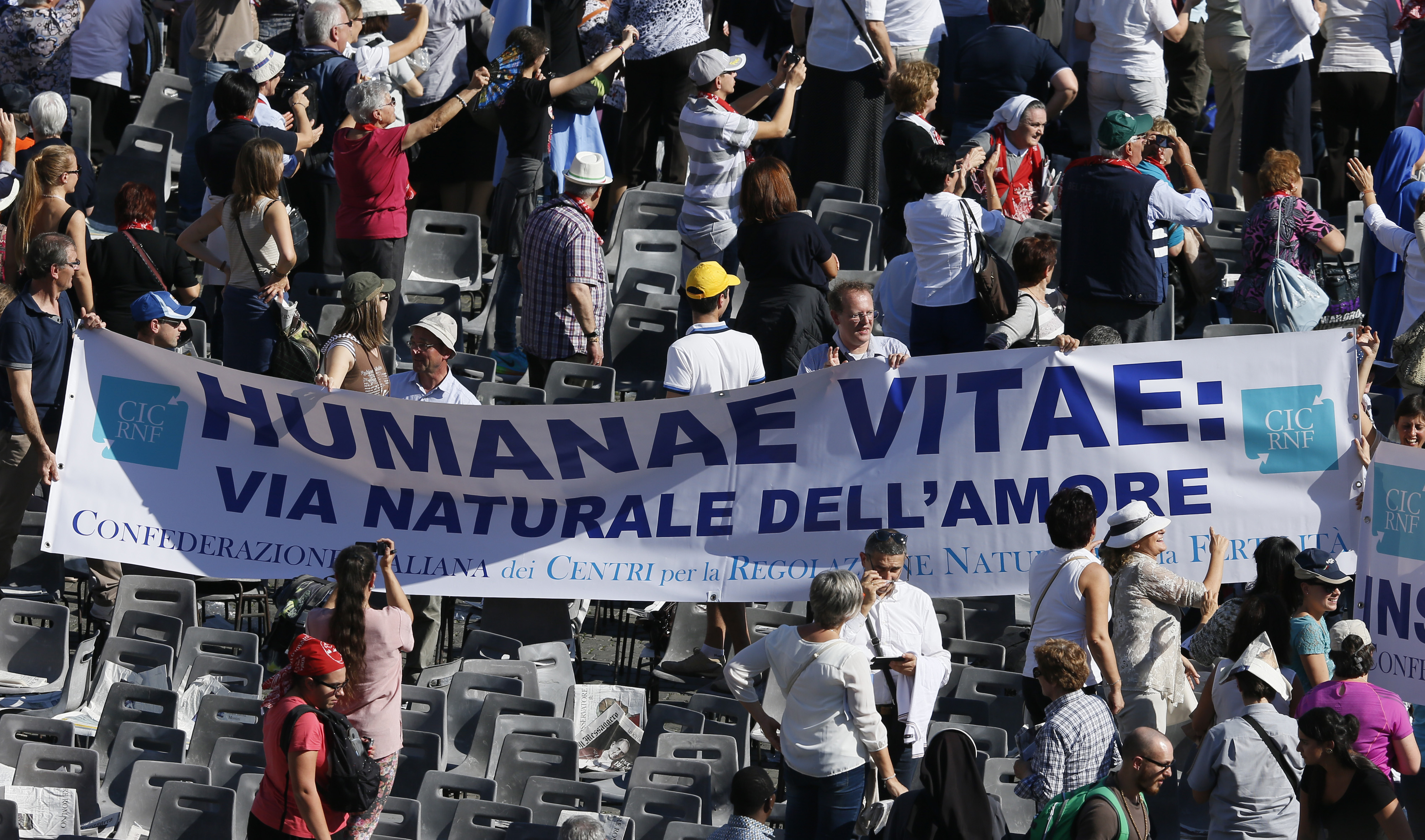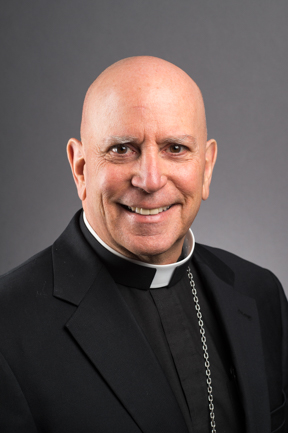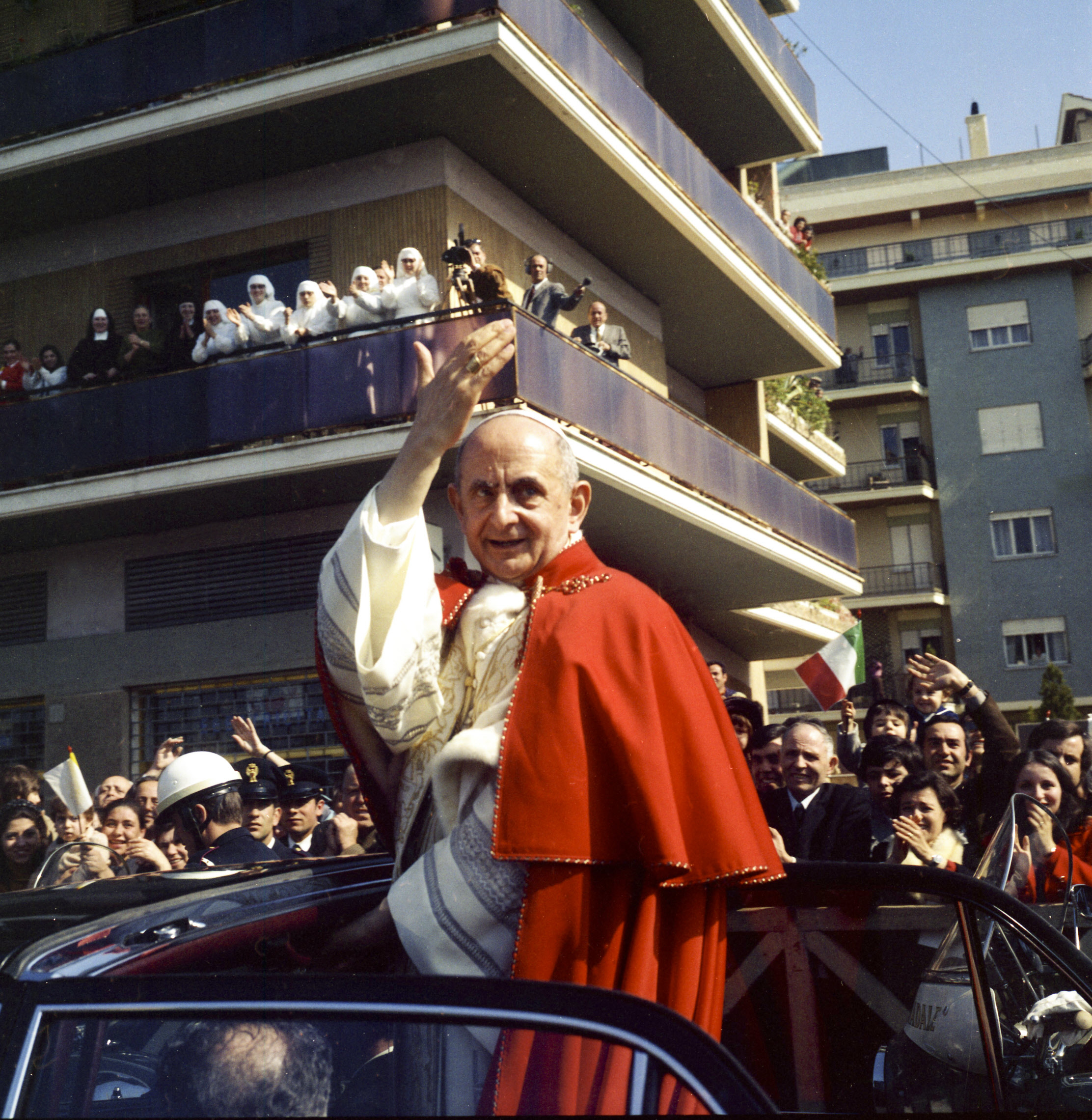
John Paul II Celebration and Fundraiser
6:30 p.m., Feb. 24 (doors open at 5:45 p.m.)
Xavier College Preparatory Virginia Piper Performing Arts Center,
4710 N. Fifth St., PhoenixArchbishop Samuel J. Aquila will deliver the keynote address on the topic of Blessed Pope Paul IV’s encyclical “Humanae Vitae”.
Cost: $10
Fifty years ago, in the midst of the sexual revolution, Blessed Pope Paul IV took a courageous step in promulgating his encyclical “Humanae Vitae (Of Human Life),” says Katrina Zeno, coordinator of the John Paul II Theology of the Body Resource Center.
“What Paul IV does in “Humanae Vitae” is he uses a natural law approach to explain the meaning of marriage and the meaning of conjugal love,” she said. “Because the meaning of conjugal love involves the giving of one person to another, then every time husband and wife give themselves to each other in the marital embrace, it needs to reflect the totality of self-giving of the person.”
In light of the 50th anniversary of the encyclical’s release, the Diocese of Phoenix is sponsoring a shepherds series throughout the year on the topic of “Humanae Vitae,” beginning with the 12th annual St. John Paul II Celebration and Fundraiser Feb. 24. Archbishop Samuel J. Aquila of Denver will deliver the keynote address.
“Blessed Pope Paul VI’s encyclical ‘Humanae Vitae’ prophetically defended the integrity of married love and warned us against the danger of reducing sexuality to a source of pleasure alone,” Archbishop Aquila said in a statement to The Catholic Sun. “Married love reflects the love of Christ, the love which caused Him to become human to save us and to give His life for His Church.”
When he issued “Humanae Vitae”, Paul IV made four predictions of what would occur if artificial contraception became widely accepted, saying it would lead to: a general lowering of morals; men using and commodifying women; a rise in divorce; and being used in such a way to reduce freedom.

Cindy Leonard, coordinator of the Office of Natural Family Planning for the diocese, said while that final prediction seemed “really far-fetched” at the time, it’s come true in the form of foreign aid being tied to acceptance of contraceptives (what’s been referred to by Pope Francis as “ideological colonization”), and the Health and Human Services mandate requiring all health insurance plans, including those for churches, to pay for artificial contraceptives.
“Even the Little Sisters of the Poor had to fight like crazy, and they’re still fighting,” she said. “Everything that has been predicted has come true, and so it’s no longer ‘doomsday’ document, … [but] instead it gives you the antidote to all of these problems.
“It’s very practical in providing for families the means of being able to plan their family size and be in concord with the way that God’s plan is for marriage and conjugal love, both responsibly and without separating the two [unitive and procreative] purposes of conjugal love,” she added.
Pope St. John Paul II’s Theology of the Body built on the foundation laid by “Humanae Vitae” by developing the Trinitarian dimension of marital love, said Zeno.
“Humanae Vitae” Shepherds Series
Archbishop Samuel J. Aquila
Archdiocese of Denver
Feb. 24
“Humanae Vitae: The encounter that leads to human happiness”
Xavier College Preparatory, 4710 N. Fifth St., PhoenixCardinal Francis Arinze
Prefect Emeritus of the Congregation for Divine Worship and the Discipline of the Sacraments
April 30
“Participation in the sacred liturgy”
St. Paul Parish, 330 W. Coral Gables Dr., PhoenixBishop James S. Wall
Diocese of Gallup
Sept. 15
“The wisdom of Pope Paul VI”
San Francisco de Asís Parish, 1600 E. Rte. 66, FlagstaffNFP Day of Renewal
Dec. 1
“Finding our way to lifelong love”
Diocesan Pastoral Center, 400 E. Monroe St., Phoenix
“John Paul II develops much more extensively the sacramentality of marriage and the marital embrace in a way that builds on ‘Humanae Vitae’ but develops this dimension of sacramentality much more,” she said. “The brilliance of Theology of the Body is understanding the human person in light of the Trinitarian God, who is a communion of love and life.”

The Feb. 24 fundraiser helps support the work of the resource center, Zeno said, adding that 90 percent of its funding comes from private donations. The money is used to support programs such as teacher in-services or the center’s newly launched Theology of the Body mentoring program.
The goal of that program, Zeno said, is to “have a core group of people in our diocese that we know for sure … have a thorough understanding of Theology of the Body from beginning to end.”
The celebration and fundraiser will be at the Xavier College Preparatory Virginia Piper Performing Arts Center, and tickets are $10. There will be a dessert reception afterward.
“The family is the foundation of society, and when it is undermined, society itself will be threatened with collapse. Therefore, it is crucial to reaffirm our commitment to the truth, goodness and beauty of Christ’s teaching on marriage and sexuality,” Archbishop Aquila said, adding that he hopes to affirm the “great beauty of the Church’s teaching on married love” at the event, “a love so desperately needed
today.”






